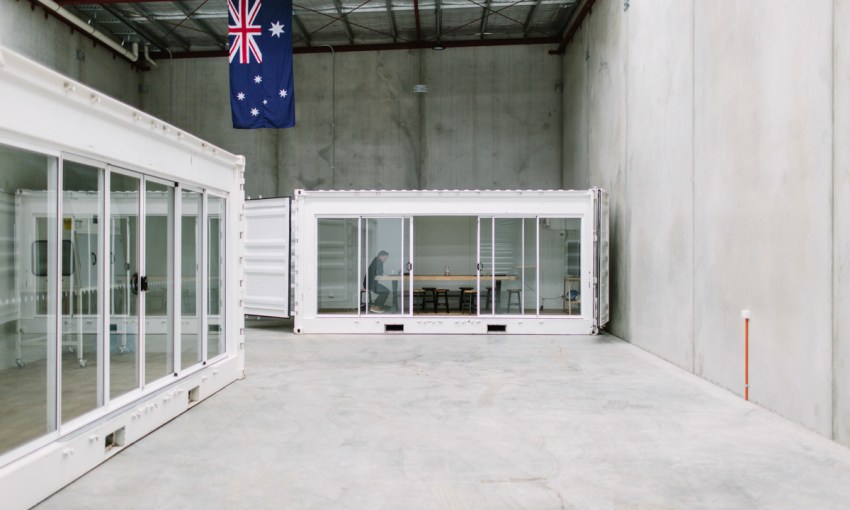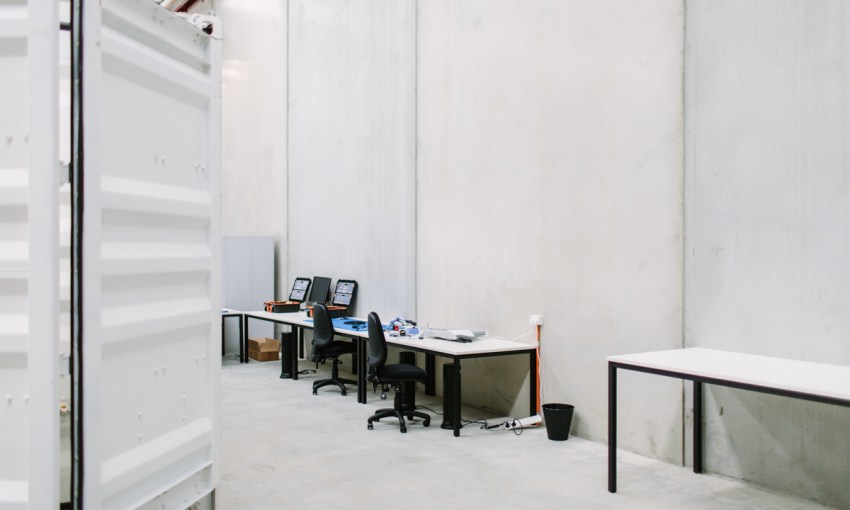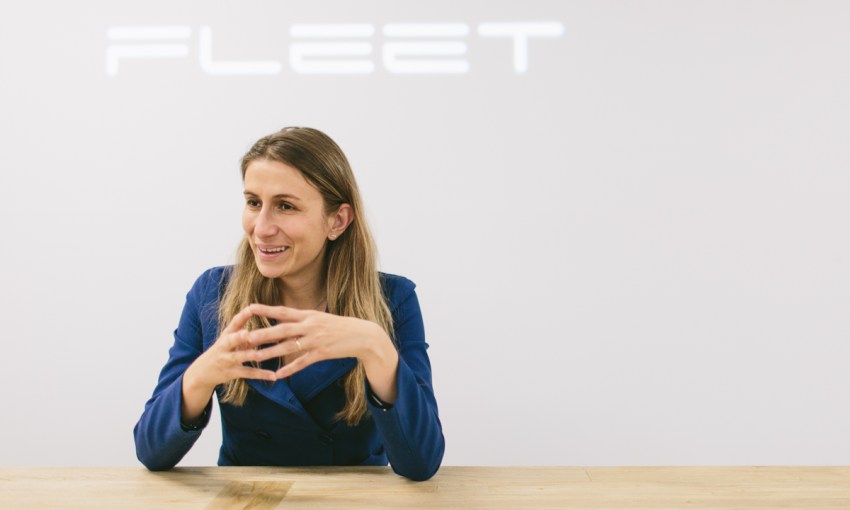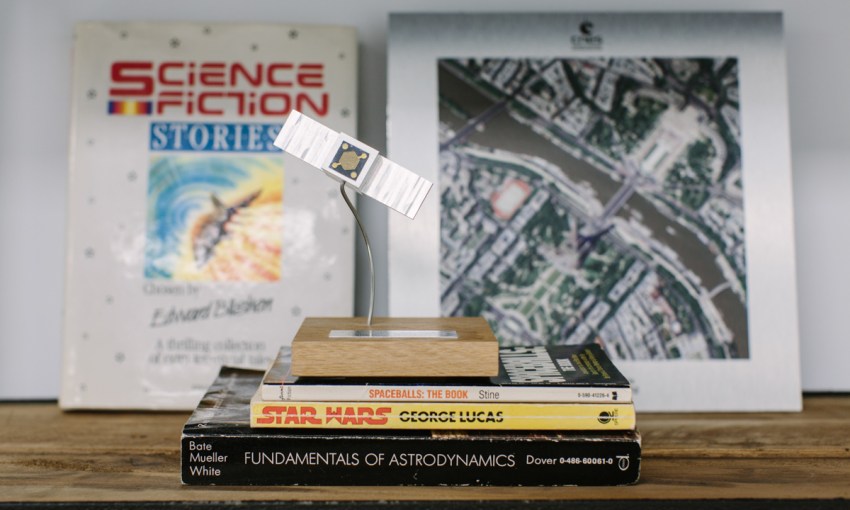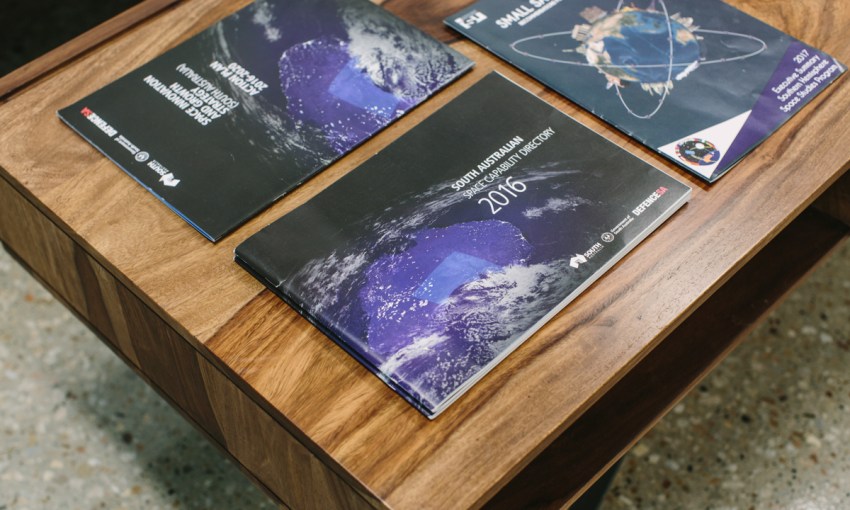Fresh from attracting $5 million in investment in its first funding round, space industry start-up Fleet is both establishing itself in South Australia and pioneering a new kind of business that promises to take local manufacturing out of this world.
Opportunity amid the stars
None of Fleet’s founders are South Australian natives, but it is in a warehouse just outside of the CBD that the trio are developing their seemingly unlikely business.
Adelaide is hosting the world’s peak space industry event – the International Astronautical Congress – between September 25-29 this year.
CEO Flavia Tata Nardini, CTO Dr Matt Tetlow, and COO Matt Pearson hail from or have worked in Italy, Germany, and Sydney respectively, but were drawn to SA variously for its business opportunities, tertiary institutions, and – as is so often the case – for love.
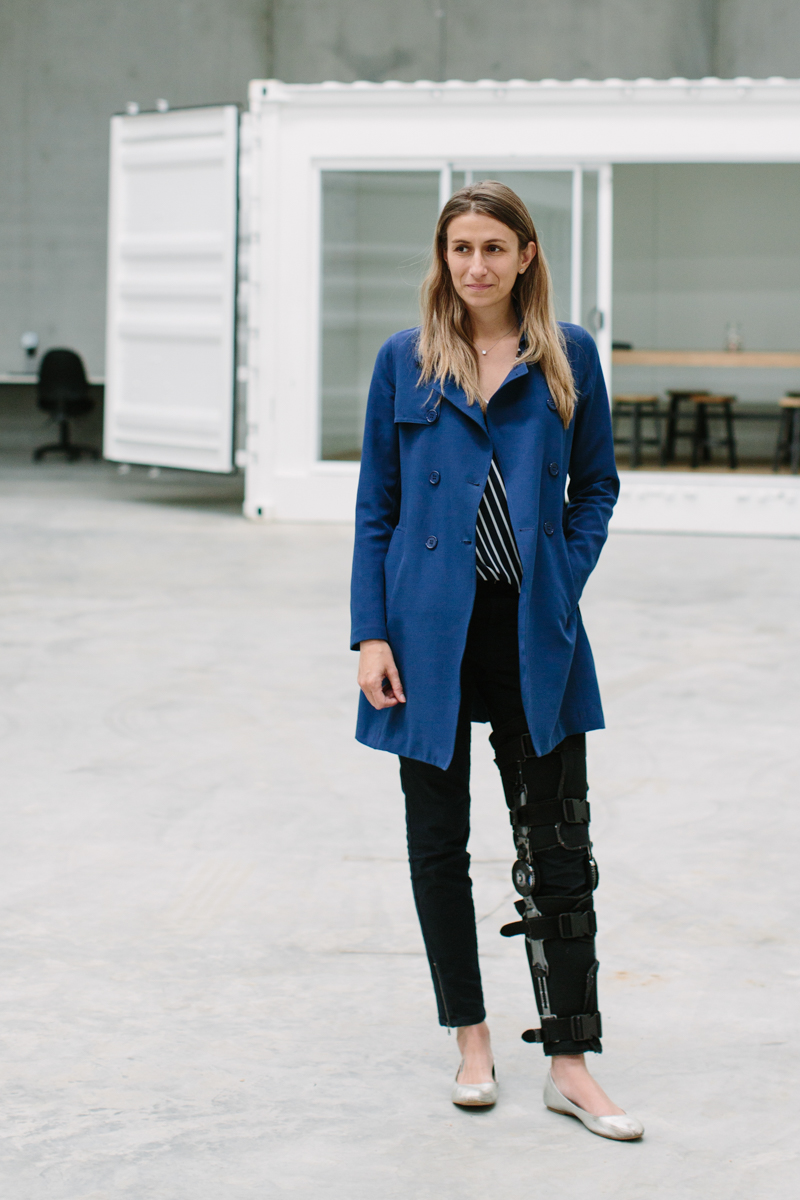
Fleet CEO Flavia Tata Nardini
Flavia arrived four years ago, moving to her husband’s home town of Adelaide and bringing along a wealth of knowledge and experience working in the space industry, a field in which her adopted city offered very few opportunities.
But after a few years working alongside Matt Tetlow on the University of Adelaide’s CubeSat nano satellite project, the pair decided to create their own opportunities.
Partnering with Matt Pearson – a serial entrepreneur who hailed from the East Coast – the trio set up their first business – LaunchBox.
“With LaunchBox, we are launching nanosatellites with kids,” says Flavia. “We launched many in South Australia for kids between Year One to Year 12, just so they can experience space and get more interested in STEM [science, technology, engineering, and maths].
“That was very successful, and now we’ve moved to Fleet because we found this big commercial opportunity and we put in a lot of hard work.”
Fleet is a nano-satellite company that aims to manufacture, launch, and operate a network of 100 small satellites. The network will be used to allow sensors placed on a vast array of things – from livestock to rubbish bins – to communicate, and will be used by industries like agriculture, environmental management, and oil and gas.
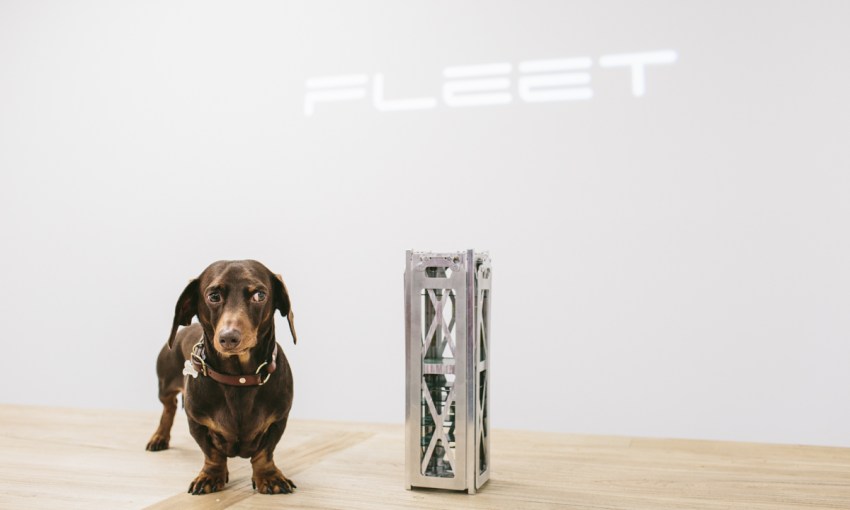
This is Fred and Fleet’s nano satellite prototype.
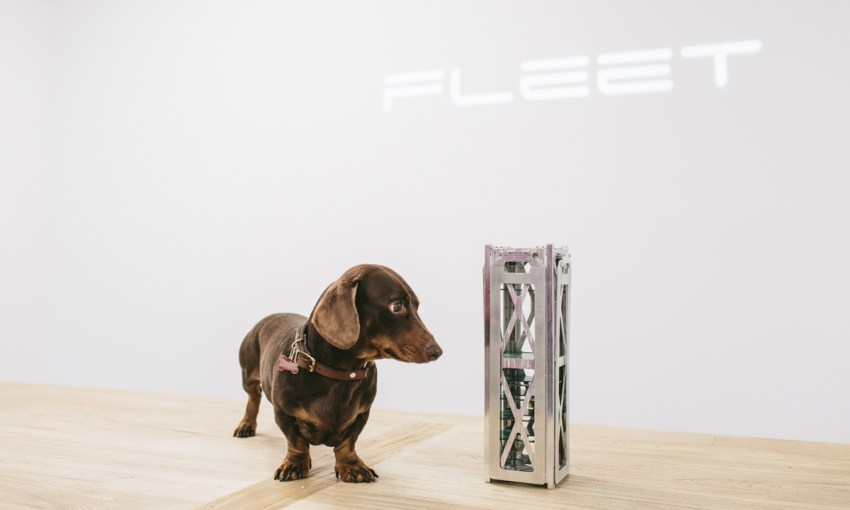
Fred really did try to get to know the satellite, but the relationship just didn’t work out.
The start-up is an unusual company in a vast number of ways that go well beyond the anomalous scenario of three founders deciding to start a business in SA.
Firstly, companies operating in the space industry are a rarity in Australia, which is one of very few wealthy countries that does not yet have a federal space agency to help stimulate research and economic development in this area.
But despite this potential barrier to development (that Flavia is lobbying heavily to redress), Flavia says Fleet is part of an emerging wave of Aussie businesses exploiting opportunities beyond our stratosphere.
“It’s good because when I came here a few years ago I think Australia had one space start-up and now there are many – 30, or more – and they keep growing,” she says.
The rapid growth of the sector is driven by a realisation that Australia’s lack of connectivity is holding back our economy by entrenching outdated, often very manual industry practices.
“It’s called the fourth industrial revolution,” says Flavia. “The third one was connecting us – like what you have with your phone – there is an integrated 4G, 3G solution that you now underestimate because it’s just part of your phone.
“But someone did that 20 years ago, and before they did they had to deploy infrastructure for you to connect with.
“And now the fourth revolution is about connecting things, not people. It’s a very exciting time to be alive, but Australia has got this problem – it’s not like Europe, Europe is super connected. So we are building ways to connect Australia’s things using sensors.”
This idea of connecting things – often referred to as the Internet of Things – has broad applications, from allowing farmers to remotely monitor water levels in a tank, to offering data feedback back from around a city to a driverless car attempting to find the fastest route to its destination.
But the weight of data that comes with this kind of connectivity is far greater than anything before seen, and that’s where companies like Fleet and others in Australia’s burgeoning space industry come in.
“We saw this gap,” says Flavia. “They talk about 75 billion devices coming online in the coming years, and we are not even three billion people online – so how are you going to do it?
“So we realised it is not a 4G or 3G exercise, you need a whole new network.”
Fleet is creating that whole new network out of nano-satellites, but working in the realm of space is not the only thing that makes the company unusual.
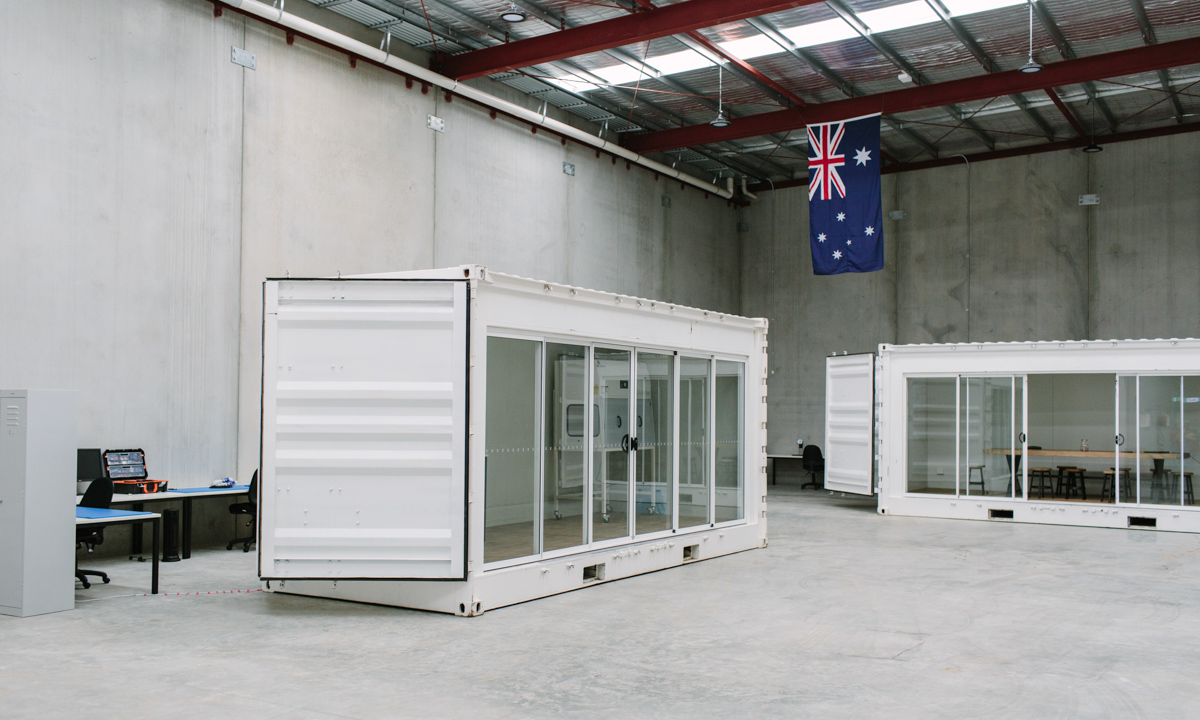
This part of the warehouse will eventually become the production line where Fleet’s nano satellites are assembled
Fleet’s funding arrangements are also out of the ordinary for an SA-based business.
Seed capital for Fleet was provisioned by the South Australian Government, which provided $50,000 to get the company off the ground. But in the hands of Flavia and the two Matts, that funding injection was rapidly built upon, and Fleet had soon attracted $5 million dollars worth of private investment.
Australia’s start-up scene is still emerging, and venture capital opportunities for companies based here are limited – which makes it even more extraordinary that all bar one of Fleet’s investors is domestically-based.
“We moved from $50,000 to $5 million in about eight months,” says Flavia.
“We have one investor in San Francisco, but it’s incredible the response in Australia.
“Our leader of the round is Blackbird – a very big VC firm – one of their people is now on our board, and we are their very first space start-up investment. I think Fleet is the very first space investment for a lot of Australian investors – it’s just good timing and it’s also a company with big ambitions and a great team.”
The $5 million in Series A funding has allowed Fleet to expand their team to 17 staff – including one person based in the USA and one person in Europe.
It has also allowed Flavia and the two Matts to begin investing in another aspect of the business that makes them stand out from the norm – their local manufacturing facility.
While large scale manufacturers like Holden are shutting their doors in SA for good, Fleet’s brand new warehouse in Beverley is being fitted with the clean room technology and production facilities needed to make the company’s nano satellites.
“We are building the clean room over there, 3D printing over there, assembly station over there – it just feels right that you can grow in here,” says Flavia as she leads us through the warehouse.
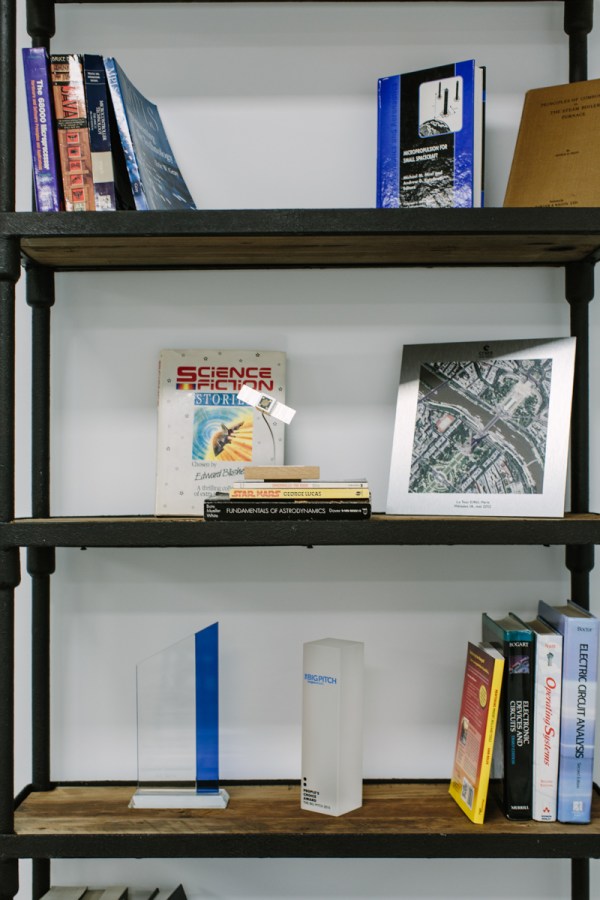
Fleet’s team are true space lovers – their shelves sport everything from Asimov to Star Wars
The first of Fleet’s nano satellites will be flung into the atmosphere early in 2018, with about two more set to be launched throughout the rest of the year.
The devices will leave Earth from New Zealand, using a launcher built by another start-up called RocketLab, which developed technology specifically to make frequent and lower-cost deployment of nano-satellites possible.
Eventually, Flavia hopes to have a network of 100 nanosats and that building all of them (at a cost of “less than a million each”, which is “cheap” when compared to traditional satellites that cost in the order of $600 million each) will create plenty of activity in the South Australian economy.
A second round of investment – in which Fleet will seek to raise a further $20-$50 million – will mostly be responsible for funding the growth and build of the satellite network, but the company has also already attracted a number of early-adopter customers.
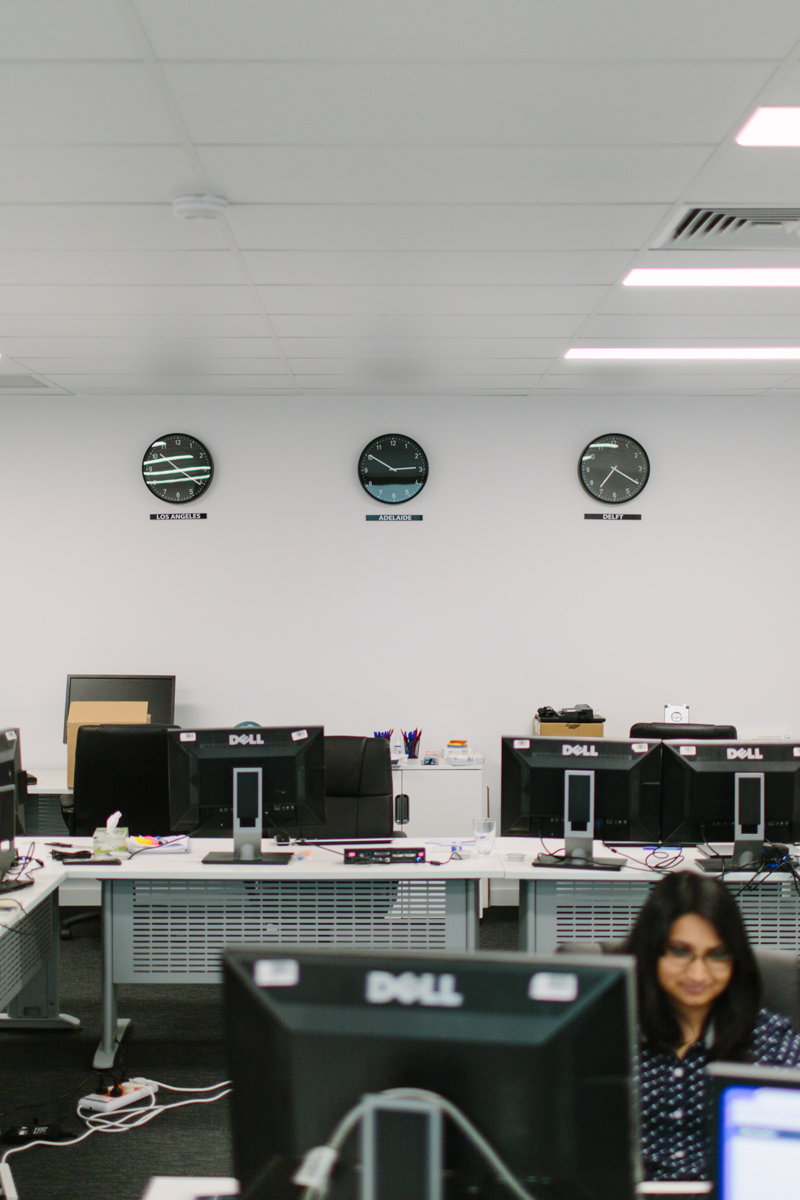
“We already have more than ten pilot programs working with clients and we need to find solutions for them all over the world,” says Flavia.
“So the team, there are 14 of us based here in this office in Adelaide, but just four of us are here now, because the rest are actually out all over the place working with people trying to find solutions.
“When we launch our two or three units next year…. The most important thing for us is that we have a solution that makes our customers happy.”
If that’s a success, Fleet has the opportunity to be at the leading edge of the Internet of Things revolution, and Flavia, Matt, and Matt will be dragging our state towards that leading edge, too.
“It’s a good story because of course now we stay in South Australia and we’ll manufacture here and we have jobs here as well,” says Flavia.
“But more than anything this could be a really big company – we have to work really, really, really hard and not have a lot of sleep, but it could be a company that is a billionaire company – these are the numbers we talk about.”
So, while Fleet’s founders might not have always been South Australian – the state is certainly lucky that this is the place they, and their company, have decided to call home.



